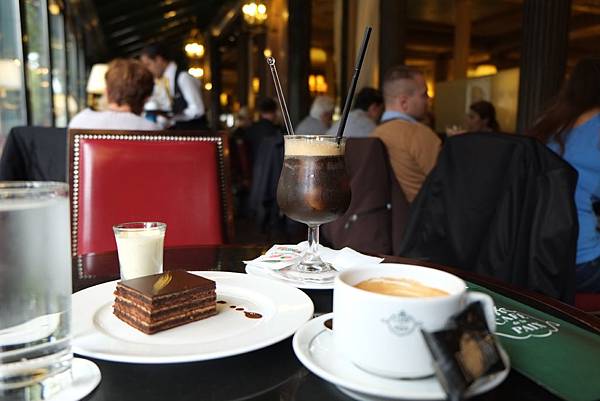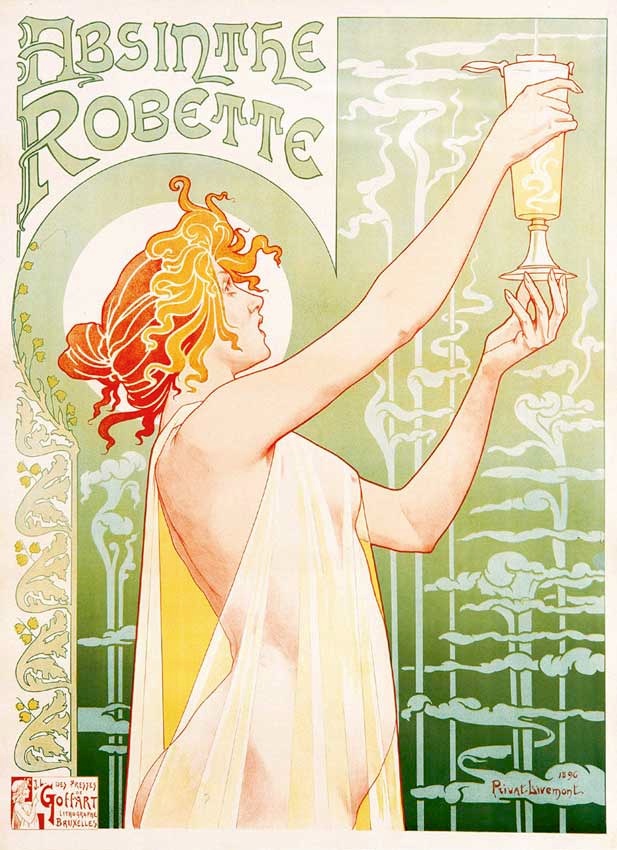和平咖啡,玫瑰人生。我的午夜梦回
巴黎女人浪漫的酸楚愁思最能用这首歌来重现:
今晚回忆起国中时初燃起当广播DJ的心愿,于是在成为痞客会员一个月之后,终于在澡盆中决定了往后人生将默默向陌生网友们自白的面貌。
选择第一首在此播出的歌曲,简单到,在起念间就决定了。
在30年代走红的法国小麻雀皮雅芙La Môme Piaf - Edith Piaf ,以及她最脍炙人口的经典歌曲 “La Vie en Rose (玫瑰人生) "
即使不懂法文,也能感受曲意的浓情绵意、荡气回肠。
是的,韵味,是这年纪更在乎的标准了!
原文和中译摘自http://www.oui-blog.com/zha/archives/002590.html
La Vie en Rose 玫瑰人生 ♪
Des yeux qui font baisser les miens 他的双眼吻著我的双眼
Un rire qui se perd sur sa bouche 一抹笑意掠过他的嘴角
Voila le portrait sans retouche 这就是他最真切的形象
De l'homme auquel j'appartiens 这个男人,我属于他
*Quand il me prend dans ses bras, 当他轻拥我入怀
Qu'il me parle tout bas 低声对我说话
Je vois la vie en rose, 我眼前浮现了玫瑰色的人生
Il me dit des mots d'amour 他对我诉说情话绵绵
Des mots de tous les jours, 只用一些平凡的字眼
Et ça me fait quelque chose 却让我有所感触
Il est entre dans mon coeur, 有一种幸福
Une part de bonheur 进入了我的心房
Dont je connais la cause, 我知道是为什么
C'est lui(toi) pour moi,moi pour lui(toi) dans la vie 我们是为了对方存在的一对
Il me l'a dit, l'a jure pour la vie. 他对我这样说,以生命起誓
Et des que je l'apercois 然后我一想到这些
Alors je sens en moi 我就感觉到
Mon coeur qui bat. 我的心一阵狂跳
Des nuits d'amour a plus finir 爱情的夜晚不会结束
Un grand bonheur qui prend sa place 幸福于是降临
Des ennuis, des chagrins s'effacent 没有烦恼,没有焦虑
Heureux, heureux a en mourir 极乐,极乐至死
而巴黎多金才子的光影则浓缩在和平咖啡店Cafe de la Paix的座位上。
今年九约中二访巴黎,两整天的行程中不似旅客般重游经典名胜,而是漫无目的地想植入所谓的巴黎情怀。
因此特地来到王尔德来巴黎时坐看众生相的咖啡店Cafe de la Paix (和平咖啡店)。
1862年6月30日开幕,因为座落在歌剧院旁,吸引了上流社会的咖啡客包括 Jules Massenet, Émile Zola, Guy de Maupassant。
同时也成为加拿大诗人Robert Service的诗作 "The Absinthe Drinker" 场景。
在巴黎的美好年代( Belle Époque 1871年至1914年第一次世纪大战爆发 ),这里的熟客包括了Sergei Diaghilev,威尔斯王子(the Prince of Wales), 前任英国国王爱德华七世Edward VII。
在一百多年前的空间中努力捕捉文艺盛世的华丽。但回国后猛然想起,却连塞纳河都没拍照。

在那个年代,咖啡披著贵族阶层下放、来自东方的奢侈品外衣,而酒早已是文青或劳动阶层的精神食粮。
前面提到的 Absinthe 是绿色的苦艾酒,文学史上给了这种酒一个浪漫的形象 la fée verte ( 绿色精灵 the green fairy )。
发源于十八世纪的瑞士,在十九和二十世纪初期成为巴黎艺术家和文学家喜爱的酒精饮料,包括美国作家海明威( Ernest Hemingway )、恶之华作者波特莱尔( Charles Baudelaire )、Paul Verlaine、Arthur Rimbaud、画家罗德列克( Henri de Toulouse-Lautrec )、画家莫德里尼 ( Amedeo Modigliani )、荷兰画家梵谷( Vincent van Gogh )、英国作家王尔德 (Oscar Wilde )、Aleister Crowley、Erik Satie、Alfred Jarry等,都是知名的Absinthe Drinkers。
诗人重现了某夜和平咖啡店里酒客们样貌 (日后持续翻译此诗):
The Absinthe Drinkers 饮酒作乐的人们
Robert Service (1874-1958)
He’s yonder, on the terrace of the Cafe de la Paix, 他就在和平咖啡店的外面
The little wizened Spanish man, I see him every day. 每天我都看见这位个小虚弱的西班牙人
He’s sitting with his Pernod on his customary chair;
He’s staring at the passers with his customary stare.
He never takes his piercing eyes from off that moving throng,
That current cosmopolitan meandering along:
Dark diplomats from Martinique, pale Rastas from Peru,
An Englishman from Bloomsbury, a Yank from Kalamazoo;
A poet from Montmartre’s heights, a dapper little Jap,
Exotic citizens of all the countries on the map;
A tourist horde from every land that’s underneath the sun—
That little wizened Spanish man, he misses never one.
Oh, foul or fair he’s always there, and many a drink he buys,
And there’s a fire of red desire within his hollow eyes.
And sipping of my Pernod, and a-knowing what I know,
Sometimes I want to shriek aloud and give away the show.
I’ve lost my nerve; he’s haunting me; he’s like a beast of prey,
That Spanish man that’s watching at the Cafe de la Paix.
Say! Listen and I’ll tell you all . . . the day was growing dim,
And I was with my Pernod at the table next to him;
And he was sitting soberly as if he were asleep,
When suddenly he seemed to tense, like tiger for a leap.
And then he swung around to me, his hand went to his hip,
My heart was beating like a gong—my arm was in his grip;
His eyes were glaring into mine; aye, though I shrank with fear,
His fetid breath was on my face, his voice was in my ear:
“Excuse my brusquerie,” he hissed; “but, sir, do you suppose—
That portly man who passed us had a wen upon his nose?”
And then at last it dawned on me, the fellow must be mad;
And when I soothingly replied: “I do not think he had,”
The little wizened Spanish man subsided in his chair,
And shrouded in his raven cloak resumed his owlish stare.
But when I tried to slip away he turned and glared at me,
And oh, that fishlike face of his was sinister to see:
“Forgive me if I startled you; of course you think I’m queer;
No doubt you wonder who I am, so solitary here;
You question why the passers-by I piercingly review . . .
Well, listen, my bibacious friend, I’ll tell my tale to you.
“It happened twenty years ago, and in another land:
A maiden young and beautiful, two suitors for her hand.
My rival was the lucky one; I vowed I would repay;
Revenge has mellowed in my heart, it’s rotten ripe to-day.
My happy rival skipped away, vamoosed, he left no trace;
And so I’m waiting, waiting here to meet him face to face;
For has it not been ever said that all the world one day
Will pass in pilgrimage before the Cafe de la Paix?”
“But, sir,” I made remonstrance, “if it’s twenty years ago,
You’d scarcely recognize him now, he must have altered so.”
The little wizened Spanish man he laughed a hideous laugh,
And from his cloak he quickly drew a faded photograph.
“You’re right,” said he, “but there are traits (oh, this you must allow)
That never change; Lopez was fat, he must be fatter now.
His paunch is senatorial, he cannot see his toes,
I’m sure of it; and then, behold! that wen upon his nose.
I’m looking for a man like that. I’ll wait and wait until . . .”
“What will you do?” I sharply cried; he answered me: “Why, kill!
He robbed me of my happiness—nay, stranger, do not start;
I’ll firmly and politely put—a bullet in his heart.”
And then that little Spanish man, with big cigar alight, 那位矮小的西班牙人,抽著一根大雪茄
Uprose and shook my trembling hand and vanished in the night. 起身握过我颤抖的手,消失在黑夜中
And I went home and thought of him and had a dreadful dream
Of portly men with each a wen, and woke up with a scream.
And sure enough, next morning, as I prowled the Boulevard,
A portly man with wenny nose roamed into my regard;
Then like a flash I ran to him and clutched him by the arm:
“Oh, sir,” said I, “I do not wish to see you come to harm;
But if your life you value aught, I beg, entreat and pray—
Don’t pass before the terrace of the Cafe de la Paix.”
That portly man he looked at me with such a startled air,
Then bolted like a rabbit down the rue Michaudière.
“Ha! ha! I’ve saved a life,” I thought; and laughed in my relief,
And straightway joined the Spanish man o’er his apéritif.
And thus each day I dodged about and kept the strictest guard
For portly men with each a wen upon the Boulevard.
And then I hailed my Spanish pal, and sitting in the sun,
We ordered many Pernods and we drank them every one.
And sternly he would stare and stare until my hand would shake,
And grimly he would glare and glare until my heart would quake.
And I would say: “Alphonso, lad, I must expostulate;
Why keep alive for twenty years the furnace of your hate?
Perhaps his wedded life was hell; and you, at least, are free . . .”
“That’s where you’ve got it wrong,” he snarled; “the fool she took was me.
My rival sneaked, threw up the sponge, betrayed himself a churl:
’Twas he who got the happiness, I only got—the girl.”
With that he looked so devil-like he made me creep and shrink,
And there was nothing else to do but buy another drink.
Now yonder like a blot of ink he sits across the way,
Upon the smiling terrace of the Cafe de la Paix;
That little wizened Spanish man, his face is ghastly white,
His eyes are staring, staring like a tiger’s in the night.
I know within his evil heart the fires of hate are fanned,
I know his automatic’s ready waiting to his hand.
I know a tragedy is near. I dread, I have no peace . . .
Oh, don’t you think I ought to go and call upon the police?
Look there . . . he’s rising up . . . my God!
He leaps from out his place . . .
Yon millionaire from Argentine . . . the two are face to face . . .
A shot! A shriek! A heavy fall! A huddled heap! Oh, see
The little wizened Spanish man is dancing in his glee. . . .
I’m sick . . . I’m faint . . . I’m going mad. . . . 吐出几个字:我病了、我昏了、我要发疯了
Oh, please take me away . . . 带我走吧
There’s BLOOD upon the terrace of the Cafe de la Paix. . . . 于是和平咖啡店的地上有这么一摊血
回到现实的现代。返回台北快两周,
在台北生活的孤独写照来不及反省,却还得为接下来生活方向烦心。
周六,早上自发地加班补充提案内容,午餐后嗜睡,晚上逼自己半年来第一次游泳,其中并延续这周重点烦恼,今天一整天都还陷入思索。
倒是刚刚开始进行这小天地里的书写时,得到了放松的片刻。
进行著国中幻想的理想职业、点放1945年的老歌,
开始了回收人生吗?是适时到来的救赎之道?还是双重人格作祟后的自找麻烦?还是待后续观察吧。
这样的焦虑应该大力检讨,并赶快在某方面获得满足,以摆脱如此心绪不宁人生现况。
至少受到这首来自巴黎的女性自溺于爱情想像中的歌曲感染,
周日,我要开始切割焦虑的来源,把精神贯注在玫瑰人生的土壤里。









